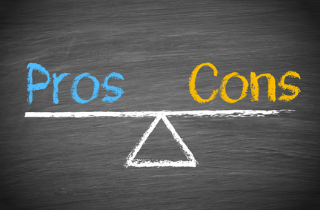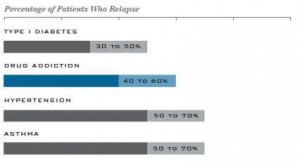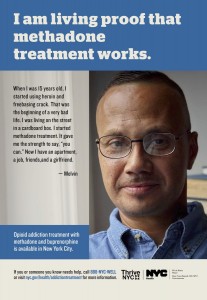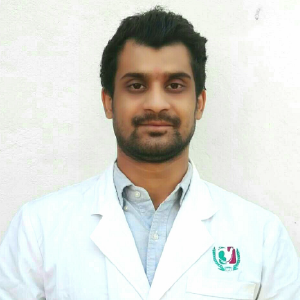ARTICLE OVERVIEW: The goal of rehab is to learn how to live a drug-free life. If you truly wish to get better… a stay in rehab can be just the right thing. Here, we examine some of the PROs and CONs of residential treatment for addiction. Then, we invite your questions and comments about attending rehab at the end.
TABLE OF CONTENTS
- What Is Rehab?
- Why Do People Need Rehab?
- Is It Effective?
- What to Expect
- What are the PROs?
- What are the CONs?
- Average Costs
- How Can I Pay?
- Alternatives
- Is It for Me?
- What To Look For?
- The Selection Process
- How Can I Make The Best Of It?
More Questions?
Q: WHAT IS REHAB?
A: Drug rehab is the protocol of treatment and recovery from substance use disorders.
The goal of any reputable rehab program is to help people stop using mind-altering substances and have a productive life. They offer many services, last for different periods of time, and are located in various settings. Many programs also offer medical detox, counseling, and aftercare programs.
Find more information on drug rehabs here:
- What is drug rehab?
- Drug and alcohol rehab centers: What to expect
- Drug addiction rehab centers: What’s included?
Q: WHY DO PEOPLE NEED REHAB?
A: The goal of any program is to help individuals who deal with substance abuse live a drug-free life.
And the need for treatment may affect more people that you realize. The 2016 National Survey on Drug Abuse and Health reported that 28.6 million people aged 12 or older were current illicit drug users in 2016, which represent 10.6 percent of this population!
Moreover, the same report showed that in 2016, an estimated 7.4 million people aged 12 or older could be diagnosed with a drug use disorder. Plus, another 15.1 million people struggle with drinking problems. In fact, the number of people who need treatment is fairly constant. This survey reports that, in total, an estimated 21.0 million people aged 12 or older needed treatment for addiction in 2016. The numbers break down by age:
- 1.1 million adolescents aged 12 to 17 needed treatment.
- 5.3 million young adults aged 18 to 25 needed treatment.
- 14.5 million adults aged 26 or older needed substance use treatment.
1 in 13 people needed substance use treatment in 2016.
Additionally, the National Institute on Drug Abuse reported 64, 000 drug overdose deaths in 2016.
Need we say more? Addiction treatment is desperately needed, so don’t wait until you’ve become a statistic… seek help!
Q: IS IT EFFECTIVE?
A: In short, yes. Addiction treatment works.
The goal of any addiction treatment program is to help people who deal with substance use disorder to break the chains of addiction, and restart their life. But, are program successful?
The process is hard, and full of starts and stops. In fact, the addiction relapse rates are between 40% to 60%, according to NIDA. Moreover, they claim that this is assimilate to other chronic diseases such as hypertension, diabetes, and asthma.
However, relapse is part of the healing process, so don’t look at it as a failure. See it as a chance to take your rehab seriously, and chance to change your program to your needs. Old habits are hard to break, but they are not unbreakable.
Also, the National Institute on Drug Abuse claims that people who enroll into rehab and finish the program, eventually stop using substances, decrease their criminal rate, and improve their overall functioning.
Moreover, medication maintenance program are very successful. For instance, about 43,000 New Yorkers benefit from buprenorphine and methadone.
Q: WHAT CAN YOU EXPECT WHILE IN REHAB?
A: Different programs offer different services, but every reputable rehab has six stages of treatment.
If you’re physically addicted to a substance and have decided to go to rehab, what can you expect? First, it’s usual off to the detox center for 4-10 days, followed by a 30-day stay at a facility where you’ll receive one-on-one sessions with the best therapists and psychiatrists. There, you’ll learn about addiction, substance abuse and the reasons addicts use. You’ll enjoy family-esque, tight-knit group therapy with people just like you.
Many evidence-based approaches are useful in treating substance abuse. Some may include psychotherapy, others only medication therapy, some could combine both types. The creation of the program depends from patient’s needs.
The main stages of rehab include:
STAGE 1. Assessment and evaluation.
You need to fill out documentation and paperwork first. Then, medical clinicians will evaluate your physical and psychological state. This step helps addiction professionals to create your program.
STAGE 2. Medical detox.
Since withdrawal could be severe, you may need medical assistance. This phase offer 24/7 medical care that will help you overcome this harsh period more easy.
STAGE 3. Psychotherapy.
Psychological therapies can help you find out the reason why you have become dependent at the first place. Some of the most common therapies include:
Behavioral Therapy.
Individual Therapy.
Group Therapy.
Family Therapy.
STAGE 4. Pharmacotherapy.
Depending on you drug of choice, you may need pharmacotherapy to treat addiction properly. Some of most used medications include:
- To treat alcohol dependence: acamprosate, disulfiram, naltrexone, benzodiazepines, and barbituates.
- To treat opioid dependence: clonidine, naltrexone, buprenorphine, methadone, and naloxone.
- To treat stimulant dependence: desipramine benzodizepine, disulfiram, and ioresal.
STAGE 5. Education sessions.
Education is one of the most important parts of addiction treatment. This step will help individuals to understand addiction, and how it affects their body and brain. Moreover, they will learn how to live without drugs, and how to deal with triggers.
STAGE 6. Aftercare program.
This program happens once you have finished you rehab. The purpose is to help you remain sober. Some of the services included in an aftercare program are:
Counseling.
Coaching.
Living in a sober house.
Mentoring.
Support groups.
Q: WHAT ARE THE PROs?
A: The pros are numerous, but the most important one is learning how to live a substance-free life.
There certainly are pros of rehab. Most obvious is the ability to obtain 30 consecutive days clean. Here are some other possible benefits of rehab centers:
- Building and enforcement of structure (schedule).
- Opportunity to have medication(s) adjusted until they’re right for you.
- Possible compensation for medical absence from work.
- Removal of day-to-day distractions for reflection.
- Solid time to unplug from the stress of society.
- Support of other peers going through the same process.
- Treatment by licensed, trained professionals.
Since it can be hard to not only develop – but also keep up with – a schedule for yourself on your own, you may enjoy the “forced upon” rigidity of a program. You’ll get used to a routine of waking up at the same time, going to bed at the same time, cooking for yourself, working out and exercising, and attending both in-house day meetings and outside NA meetings – every day. For some, the time away from home and work life allows for clearer thinking, to better focus solely on recovery.
Here’s what one person had to say about her time in rehab:
In my first inpatient rehab, I found solace knowing I was far removed from my home surroundings, and relieved I could get away from those I used with – without having to deal with daily phone calls to get high. And, when you connect with another addict who’s been where you are, there’s a sense of acceptance, which leads to a willingness to embrace recovery and believe that you can, in fact, stay clean from drugs and alcohol.
Q: WHAT ARE THE CONs?
A: Exposure to other patient relapses and the feeling that you won’t succeed can get you down.
Drug rehab is NOT jail. But similar to how inmates return to society “worse off” than they were prior to serving time – rehabs can leave its patients more excited to use than they were prior to admission. Here are some potential negatives of drug rehabs:
- The cost of drug rehab.
- Difficult transition from supervision to home environment.
- Disconnect with psychotherapist or counselor (usually assigned).
- Exposure to other patient relapses, outbursts, or triggers.
- Stress of being around disgruntled addicts 24/7.
Here’s a first-hand account of difficulties that rehab may present:
I remember in the second inpatient rehab I attended, I was unable to complete the 30 days because of the aggression between myself and many of the other patients. This resulted from me notifying staff that oxycodone pills were being brought inside the center – I even walked in on the person in my room shooting up in the bathroom. Normally, I keep to my own, but I didn’t want to jeopardize my recovery, and I was disturbed to know this patient had introduced another to IV drug use for the first time – and was planning on bringing more into the facility.
Also, not everyone in rehab is there to get clean. Some attend as voluntary admittance, but more are court-ordered or doing their time for family or loved ones. In 30 days, bad attitudes can rub off, and, with incessant chatter and stories of using, you can find yourself more ready to relapse upon arrival home than you were prior to admittance (like me, in this case).
Q: WHAT ARE THE COSTS?
A: Rehab expenses are based on the services you get. Note that inpatient programs are more expensive than the outpatient ones because you reside at the faculty.
The average costs of drug rehab are:
Counseling therapy: $50- $150+ per hour.
Detox program: $6-12K per treatment episode.
Outpatient program: $100-$150 per day.
Inpatient program: $500-$700 per day.
Some low-cost rehabs can charge about $7.5K per month, while luxury programs can cost about $120K. All these expenses depend on the services you receive. Four factors affects the costs on any rehab:
1. Amenities provided.
Program services can offer yoga practice, massage therapy, spa, animal therapy, and many more. Some high-end rehabs provide personal chefs and life coaches. Always ask the facility what’s included in the price, since some of the therapies are charged extra.
2. Duration.
The length of the rehab stay affects the final outcome of the cost. A 30-day stay is cheaper than a 90-day. Likewise, residential stays of 6 months or longer can be very costly…but worth it in the long run.
3. Location.
Another factor that affects the price of a rehab is the location. Island and beachfront rehabs tend to be more expensive than a local clinic located in a shopping center. Don’t forget to include the transportation costs if you travel outside of your home area.
4. Type of program.
Inpatient programs provide medical care, room, and board for their patients, while patients in outpatient program come and go for few hours, several days per week. Because of this, outpatient rehabs are cheaper.
Q: HOW CAN I PAY?
A: Many insurance plans cover the cost of programs. Also, the Affordable Care Act can be a good source of behavioral healthcare insurance. Or, look into employee assistance program, scholarships, or SAMHSA vouchers.
Unless you’re covered by awesome insurance, it can cost you about $20K+ per 30 days in an inpatient rehab. So, what are the alternatives? Or, should you consider sucking up the cost and paying for rehab out-of-pocket?
Many programs accept private insurance, state vouchers, or Medicaid. You may also find low-cost program by using your state’s Department of Health and Social Services.
Some of programs are completely state funded. You can inquire about program openings at your local state health department. But, some therapies may not be covered, so do your research before enrolling. Moreover, many rehabs offer their own financing options. Some of the alternatives include:
- Employer Assistance Programs.
- Federal SAMHSA vouchers for treatment.
- Scholarships.
- Sliding scale payment.
Q: ARE THERE ALTERNATIVES?
A: Yes.
Here’s what one of our contributors, Melanie Solomon, author of A.A. Not the Only Way has to say on the subject:
Having been admitted to two inpatient rehabs and one outpatient program myself, I can tell you that this recovery option is not for everyone, and that the picture painted above is sometimes too good to be true. It’s worth your while to consider all options prior to making any decision regarding recovery.
While it is necessary to go through medical detox if you are suffering from acute physical addiction (known medically as drug dependence), some addicts may do better simply attending Narcotics Anonymous (NA), SMART Recovery, Recovery S.O.S., or Alcoholic Anonymous (AA) meetings. Others may get the best results by seeing a therapist a few times a week and committing to a structured, hour-by-hour schedule – that includes exercise, meditation, social outings and so on.
Q: IS REHAB FOR ME?
A: Rehab programs are made to help people who have substance use problems, and who want to restart their life to better.
If you suspect that you may have a problem with drugs or alcohol, check out these symptoms:
- Decreased work or school performance because of drug use.
- Increased health problems related to drug use.
- Legal problems related to drug use.
- You cannot control how much or how often you use.
- You cannot stop (or stay stopped) using your drug of choice.
- You have relationship and family problems due to your use.
- You spend a great deal of time thinking about, using, trying to find, or recovering from your drug of choice.
Still not sure? Check out this drug screening tool by NIDA.
Suggested reading here:
Get Personalized Addiction Treatment Text Support
Receive 24/7 text support right away and at your convenience. There is no obligation to enter treatment and you can opt out at any time.
- Resources about addiction and recovery
- Information about our treatment process
Q: WHAT TO LOOK FOR?
A: Certification, care quality, and follow-up services.
When you start searching the right program for you, you will see many ads for rehabs in nice settings with many alternative therapies. BUT, keep your focus on your goal, and on the things that truly matters. You goal is sobriety, and your focus should be on:
1. Appropriate accreditation, certification and licensing.
Be sure to check your rehab program accreditation at the state’s Department of Health and Social Services. Also, make sure that the rehab is run by licensed, and trained health professionals.
2. Quality of care.
Look for a rehab with integrative services, and a clear continuum of care. Check out the drug rehab data for statistics.
3. Follow up services.
The aftercare programs ensures that the rehab continues after you have finished your stay. These programs will set you up with relapse prevention plan, and support groups in the community.
Q: HOW TO CHOOSE THE BEST PROGRAM?
A: A tailor-made program in accordance with your needs is always the right option.
The first step in choosing to get better is to stop living in denial. Admitting that you have a problem begins your journey to wellness. Breaking the old habits can be hard and scary, but it will be worth it. Keep in mind that you need to find a rehab where you will feel safe and secure. A customized program may be the answer to your problems. Before making the choice you can always:
- Consult with your doctor
- Ask referral from a local clinic/hospital.
- Ask referral from community centers,
- Speak with your friends and family
- Contact your health insurance company
- Search the American Psychological Association
- Search the national SAMHSA treatment directory
Q: HOW CAN I MAKE THE BEST OF IT?
A: A person can only recover when he or she is fully ready and completely done with using drugs or alcohol. To make the best of rehab, follow suggestions!
The external factors mentioned above – like the attitudes of other patients, quality of staff, events transpiring back at home – can all play a role in one’s recovery. But addiction can be beaten, and only so when the addict truly wishes to discontinue behavior and do so for him or herself. Getting or staying clean or sober for a parent, spouse, partner – that will only keep someone sober for so long.
If you believe a rehab is the best way to kickstart your sobriety, then make sure you spend as much time as it takes to find the center you believe will produce the greatest results. Some questions to ask yourself include:
- Is a change of scenery necessary? Then search for a program in another state.
- Would going out of state cause homesickness or anxiety? Then find the most reputable local rehab.
- Do you think a religious center would provide more support? Then seek faith based treatment options.
Do your research, call and “interview” centers, and be open to rehabs not (fully) covered by your insurance provider. When it comes to saving lives, there is no such thing as cost.
And, if a drug rehab center isn’t ideal, keep in mind the other, less-traveled recovery routes. Outpatient addiction treatment has been shown to be as successful as inpatient stays for those who are motivated and willing to do the work. A vacation with loved ones, structured schedule, routine exercising and daily meditation may be just exactly what the doctor ordered. Support groups can also play a role in your own self-guided recovery.
More Questions?
Whatever steps you decide on, know that you are not alone! Please leave us your question or describe your situation in the comments section below. We’ll be in touch with you as soon as we can with a personal reply. Or, we can refer you to someone who can help!











